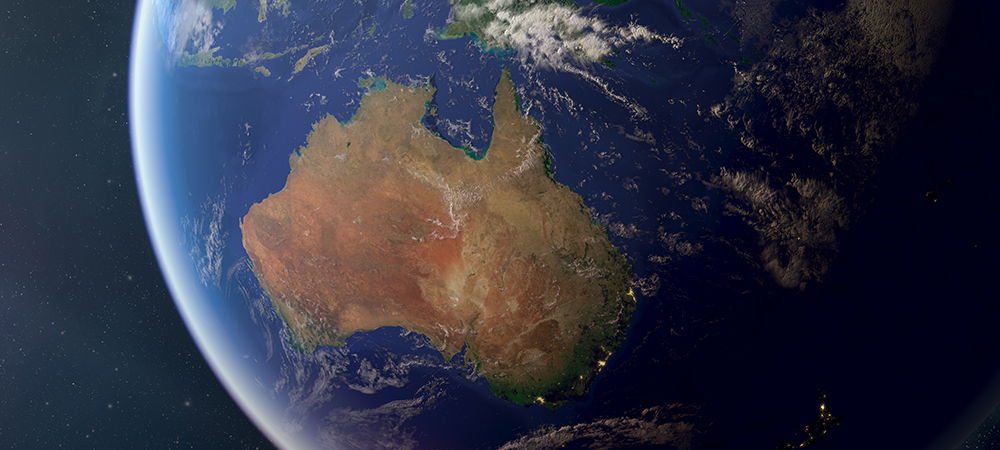Australia’s leading space research center SmartSat CRC announces a suite of new R&D projects – and the IT/AI partners to make them happen.
SmartSat Cooperative Research Center (SmartSat CRC) is leading the exponential growth of Software Engineering and AI for space application through its intense collaboration with industry, universities and government.
“Most industries are now ‘information’ industries and increasingly are AI-enabled information industries,” said SmartSat CEO Professor Andy Koronios.
“The space industry is also fast adopting autonomy, robotics and other AI technologies,” he said.
As the largest space R&D and Innovation organisation in Australia, SmartSat has catalysed AI-enabled innovation and is developing the next generation of space technologies in Australia.
That means funding for projects such as Cyber Secure aiming to build capability and capacity at UNSW Canberra Space in the area of cybersecurity and resilient Artificial Intelligence for space systems. The research work will include development of AI-algorithms, hardware testing and demonstrations (simulations, emulations, and eventually deployment) of in-orbit AI-security space systems.
SmartSat has invested some AUS$7m in the Australian Capital Territory region, involving the ANU, UNSW-Canberra and local industry that is primarily for developing the world-leading AI algorithms and smart sensors for the next generation of ‘smart’ satellites.
“IT is a critical contributor to Australia’s space industry,” said Prof. Koronios.
The investment supports the newly announced ACT Space Update 2023 with a suite of new R&D projects and university appointments.
New research projects include space technology for bushfire resilience at the Australian National University and surveillance of space objects with Infinity Avionics and UNSW Canberra.
SmartSat backed academics in ACT are spearheading research in system autonomy and intelligence, cybersecurity, and precision measurement in space.
One of two new research projects co-funded by SmartSat and ACT Government brings together the Australian National University (ANU) and EOS Space Systems to deliver advanced manufacturing technologies for the OzFuel instrument. This is a key payload of an Earth Observation Resilience satellite mission that aims to improve continental scale fire management and environmental monitoring tailored specifically to Australian Eucalypt forests.
The second project brings together Infinity Avionics, UNSW Canberra and Nominal Systems to develop capabilities in Space-Based Space Surveillance (SBSS), a vital tool for both defence and commercial space operations contending with the risks of navigating increasing debris and space objects in Low Earth Orbit (LEO).
SmartSat has also recently approved funding research capabilities in cybersecurity and resilient Artificial Intelligence for space systems at UNSW Canberra.
Professor Ed Kruzins, Acting Director, UNSW Canberra Space, said: “The funding announced for this research is so important because operating in an extreme environment like space is complex and challenging, and Artificial Intelligence is key to making this a simpler and less risky task.
These projects put the ACT in the box seat for the next generation of space activities and UNSW Canberra Space is really excited about our role in the sector and being a central player in the ACT’s growing space industry.”
Two SmartSat-backed Professorial Chairs at ANU: Professor Hanna Kurniawati, Professorial Chair for System Autonomy, Intelligence and Decision Making; and Professor Kirk McKenzie, Professorial Chair of Precision Measurement in Space, are on the team.
Prof. Koronios said that the AUS$7M joint research investment in ACT demonstrates SmartSat’s commitment to supporting the national space sector.
“Since 2020, SmartSat has demonstrated its commitment to building the ACT’s space R&D capabilities, funding over ten projects at ANU and UNSW Canberra. We are excited to support this proactive agenda laid out by the ACT government.
“This fresh round of research investment by SmartSat delivers a rapid injection to the ACT Space Update. We believe it will have a force-multiplier effect on the development of space R&D capability in the ACT and provide direct support to the ANU’s broader Earth Observation Resilience Mission with critical technology.
“SmartSat is building the foundation for a strong and successful national space sector. Through strategic investments that bring together prime industry players such as EOS Space Systems and emerging companies like Infinity Avionics with Australia’s leading universities, we are developing the specialist capability needed to grow a robust commercial space industry,” he said.


